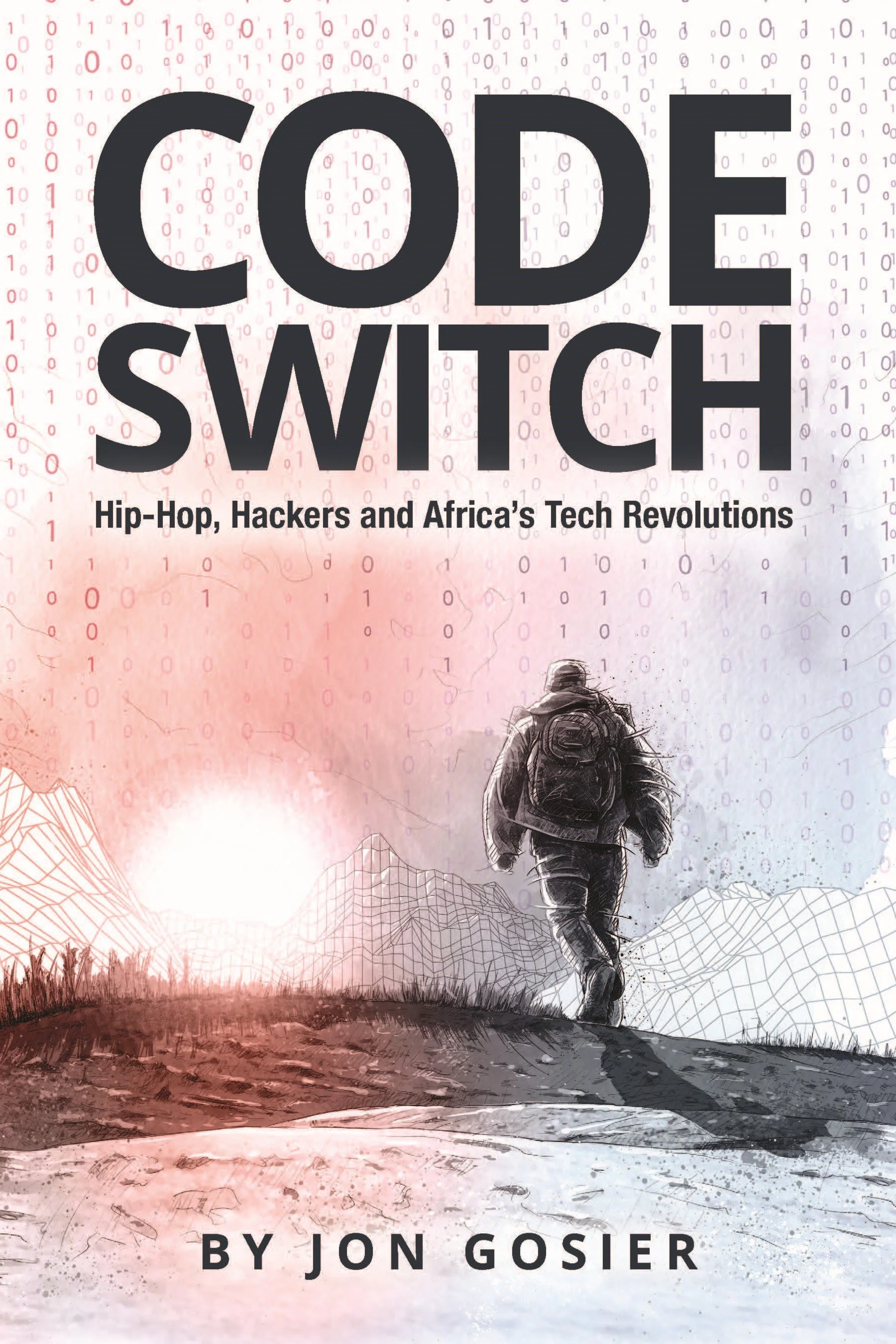CODE SWITCH is a memoir from data scientist and businessman Jon Gosier. Gosier has spent over 20 years working in technology and data privacy across three continents.
The memoir offers a first-hand account of how these powerful digital forces have influenced a range of global phenomena, from election corruption, to the over-policing of black neighborhoods in the US, to youth radicalization in the Arab world.
CODE SWITCH turns back the clock to recent history where East clashed with West, technology clashed with cultures, and tradition clashed with modernity.
370 pages
BOOK SYNOPSIS
In the early noughties, Jon Gosier is working as a music producer for artists including Jeezy and Andre 3000 (Outkast), and the then-unknown film director, Tyler Perry. Though the work is lucrative, Jon decides to leave the entertainment industry behind. What follows is a one-of-a-kind journey through the worlds of technology, entrepreneurship, and African politics.
In Europe, Jon encounters a sprawling and vibrant hacking community, where he becomes familiar with emerging GPS and data technologies. His travels eventually take him to East Africa. Leveraging the digital location and data skills he learned in Europe, Jon joins a group of Kenyan digital activists working on disaster and human crisis response. Their work is shortlisted for the Nobel Prize and honored by the Obama administration.
Jon’s work with Kenyan digital activists sets the stage for a deepening relationship with the African continent. Over the subsequent years, he co-founds a network of tech hubs for African entrepreneurs that today spans 90 African cities and 30 countries. Eventually, he becomes so embedded with the country’s youth politics that the US intelligence community ask him to support their counter-terrorism efforts in Africa, where the radicalization of the young presents a growing threat.
In 2014, Jon delivers a speech at the United Nations, in which he wrestles with the tensions between technology, capitalism and philanthropy. His expertise sees him go on to work with government agencies on data practices in policing, election integrity, and national defense.
Code Switch provides a rich and gritty account of this unique life story. Throughout, it casts new insight on how the nature of data technology has changed. Where once activists used these new tools to protect elections and drive activism, they are now being used to manipulate and target people with disinformation.
ABOUT THE AUTHOR
Jon Gosier is a film producer, writer, tech entrepreneur, and investor based out of Atlanta, GA.
From 2008 to 2011 he lived and worked in East Africa, primarily in Kampala, Uganda. There he founded the organization Appfrica, later co-founding Hive Colab and AfriLabs. He briefly worked with the crisis-response organization Ushahidi before working as a consultant to the U.S. Department of Defense as part of counter-intelligence and anti-extremist efforts.
He first became fascinated with the technologies used for data collection and geolocation while traveling across Europe in the early 00’s only to watch those tools proliferate, consuming global social movements, politics, and financial markets.
HISTORY OF THE BOOK
Bringing this manuscript to life is a story in itself.
In 2018 I participated in a TED Res, a residency program where creative projects are pursued with the help of TED.com’s staff. The TED staff had been supportive of my work since 2009 so it was only natural to collaborate with them on this new endeavor.
It was after my 2018 TED Talk that the memoir was signed by publisher Harper Collins. Years later, in 2022, I regained the rights to the project opted to publish independently, with its current publishing partner, Misfit.
Why would someone walk away from a six-figure publishing deal with one of the largest publishers in the world?
I used to think I wouldn’t leave a major publisher for any reason. In this case, I felt it was my only choice. After contract disputes and years of broken commitments, my legal team and I felt there was little value in staying. Additionally, the views of Africa (and Africans) expressed by some of the editorial staff at Harper made difficult to see how they would be the right partner.
There was no way to edit my reality to fit their stereotypes.
This is a memoir. It reflects my relationships with real people, organizations, entrepreneurs, and activists whose stories deserve to be highlighted. It reflects my lived experience in a continent that I came to know and love. Its about a changing Africa, its contributions to the tech world, and its changing role in the global economy. There’s no story to tell other than the one I experienced.
I avoided speaking about this dispute with Harper. It’s necessary now because they’d previously marketed the project, announced it with industry associations like Publishers Lunch, and they registered it with national distributors and stores (including Amazon). This was all part of a normal rollout process for an author. I chose to walk away from that deal, mid-roll out, for the reasons stated above.
Hopefully this clarifies why in some places it will appear that Harper published CODE SWITCH even though they have not.
I do thank Harper Collins for lighting the fire that got me to write it in the first place.
Available at Amazon and other leading stores!
THE FEATURE FILM
Portions of CODE SWITCH have been adapted into the feature film COLLATERAL DATA, currently in production in Atlanta. Its release is scheduled for early 2024. IMDB
Updates on the film will appear here.





